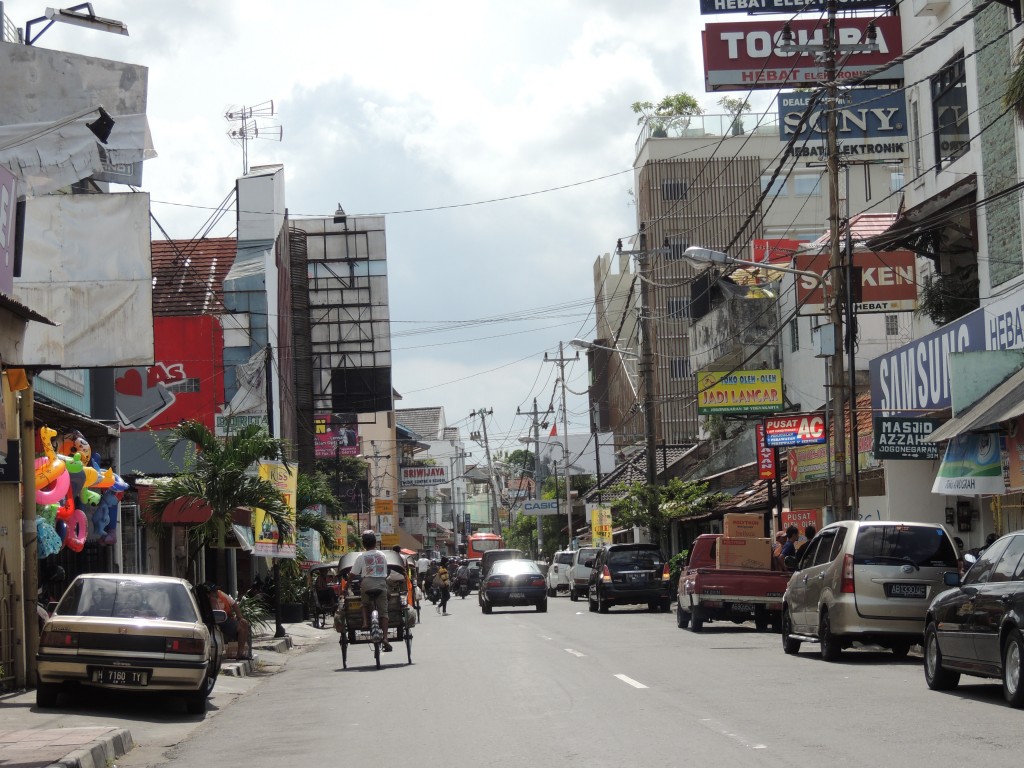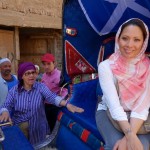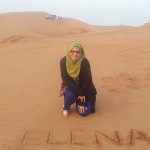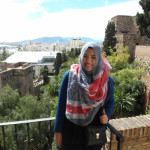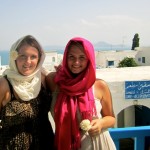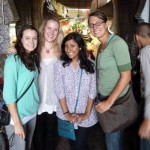Traveling in Indonesia and Embracing Cultural Differences
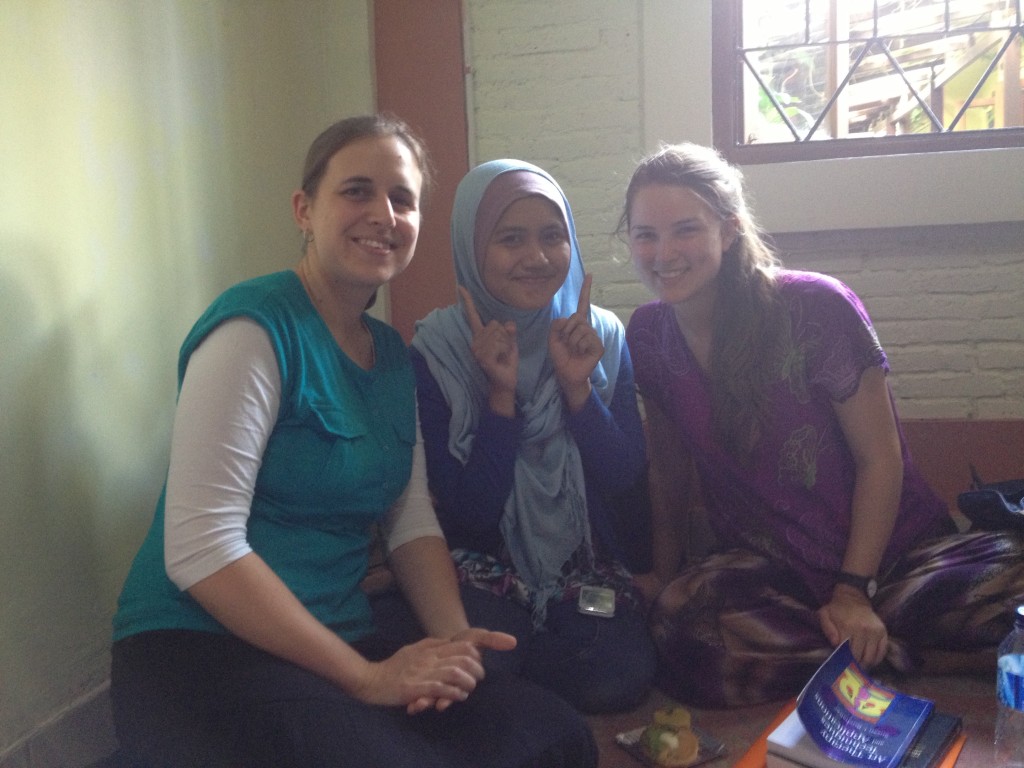
When I first arrived in Indonesia, I’m not sure exactly what I expected. Culture shock: certainly. Homesickness: perhaps. It would be a new experience, to be sure, but in my mind Indonesia was a blank page; I had very little to go on except a vague conception that life and culture would be different than in the United States. What I have experienced thus far has gone far beyond what I could have imagined.
Before arriving in Yogyakarta, my final destination and where I’m currently volunteering, I had to catch a transfer flight in Denpasar Bali. After arriving in the Denpasar airport, I made my way from the international terminal—an enclosed building with air conditioning, clear signs, and other amenities I wouldn’t be surprised to find in any airport in the US—to the domestic terminal for my transfer flight. I couldn’t help but feel a sense of otherworldly-ness as I entered what looked like merely a large warehouse where a large confusing crowd of people converged on check-in booths lined up against the far wall. I joined the throng, uncertain I had found the correct check-in booth, sweating in the tropical heat, and fighting to keep my place in the barely discernible “line.”
After I bid my luggage what I hoped was not the final farewell, I passed through security, ID and boarding pass barely glanced at, and arrived at my gate. On the flight, I reflected on what seemed to be such a stark contrast. While the international terminal appeared orderly, comfortable and modern, the domestic terminal was seemingly hectic, disorderly, and what one would expect in a developing country. I braced myself for six weeks of culture shock and dissimilarities between home and this new country.
Traveling in Indonesia and Embracing Cultural Differences.
I could not have been more wrong. Every day I am more struck by the similarities rather than the differences. For example, Indonesia is a predominantly Muslim country; it has the largest Muslim population in the world (in terms of absolute numbers). For many Americans, a country in which the majority of the population is Muslim can seem entirely foreign and incomprehensible.
In order to respect the local culture, the AUA (America’s Unofficial Ambassadors) volunteers wear pants or long skirts and abstain from wearing tank tops or shorts in public though the average temperature is 80 to 90 degrees. From our house and work we can hear the call to prayer from a local mosque five times a day broadcasted on loud speakers. Last weekend, we were surprised to find that many women wear their hijabs (head scarf), long skirts/pants and long-sleeved shirts even when swimming at the beach.
Some similarities are unexpected and amusing. The other day I was talking to one of my co-workers about Ramadan—a holy month for Muslims observed as a time of fasting from sunup to sundown—and her time as a university student. A few days leading up to Ramadan, mosques will often prepare delicious foods for mosque-goers and passersby to enjoy before the official start of fasting. These are typically foods that can’t be found any other time of the year and she and her friends knew which mosques served the best foods and on which days. So they would mosque-hop, so to speak, to take advantage of all the great free food. When she told me this, my first thought was college students are college students no matter where you go and we love free food.
In two other important respects, I found that my initial perceptions of dissimilarity have been challenged.
In two other important respects, I found that my initial perceptions of dissimilarity have been challenged. For the six weeks I’m in Indonesia, I’ll be interning at Rifka Annisa, a local NGO which provides support to women and children who are victims of domestic violence. First of all, as an American, I’m not completely immune to the negative stereotypes of the Muslim world in our country. The media is permeated with a predominantly negative image of the Muslim world. Muslims are “the other,” so wholly different from ourselves.
Muslim women in particular are portrayed as oppressed. In the American mind, a woman in a hijab or burka (full-body covering) is almost the poster child of gender discrimination. Secondly, I studied international development in a Western university. Try as we might to be fair-minded and promote, in the words of the Millennium Development Goals, a global partnership for development, there can be a sense of condescension in the relationship between developed and developing nations.
Developing nations, steeped in poverty and overwhelmed by debt, health issues, corruption, and other maladies, must be “rescued” by benevolent developed nations with their money and superior technology and manpower. Of course, I’m painting a dramatic picture for emphasis but I think there is some truth to it.
They are intelligent, well-informed and incredibly passionate about bettering the lives of women in their country.
Armed with these two subconscious perceptions, I was inspired to meet the women of Rifka Annisa and learn about the work they do. They are intelligent, well-informed and incredibly passionate about bettering the lives of women in their country. I wouldn’t call any of them “oppressed” nor in need of a paternalistic helping hand. They are seeking to tackle the issue of gender-based violence from many different angles and as effectively as possible.
For example, they’ve recently launched their “Men’s Program.” After discovering that 90 percent of their clients wished to stay with their husbands, they realized that working only with women was ignoring half the problem. Thus, they offer counseling to men as well as women.
I will certainly continue to find differences both perplexing and amusing, between American and Indonesian, developed and developing, Muslim and non-Muslim, but there is no intrinsic superiority and there’s more commonality than perhaps I initially realized.


